Why You Need an eCommerce Platform and How to Choose the Right One
What is an eCommerce Platform?
An eCommerce platform facilitates the management of a website, marketing, sales, and operations for any online business selling products or services — small, medium, or large. Imagine it as the core of your online business. In the current market, eCommerce is valued at $4.48 trillion. When it comes to upgrading your eCommerce software to ensure you’re getting the biggest piece of the pie, it’s good to know you’re making a smart move.
Building an eCommerce business is more than just simply putting up your product listings on the web. It is far more complicated than you actually imagine. Just like running physical retail, or a production facility, the same level of strategic thinking and planning also goes into building and running your eCommerce business.
But when it comes to selecting an eCommerce platform, you have to remember that your eCommerce site will dictate the following 4 things:
- Growth: How quickly is your business able to grow?
- Running costs: This includes the cost of building your eCommerce platform and ongoing development and maintenance costs.
- Customer engagement: How you can control how your customers interact with your business.
- Objectives: The right eCommerce platform will enable you to deliver the service you set out to achieve.
Why use an eCommerce platform?
Whether you’re expanding a brick-and-mortar location, looking for a robust enterprise solution, or just starting a business from scratch, the right eCommerce software will make a huge difference to your profitability and stability.
Regardless of whether your business is B2B or B2C, eCommerce platforms are an essential part of any online operation as it provides your company an accessible way to share and sell products online to a wide pool of potential customers. Streamlining the way your company interacts with clients, customers, and employees is another benefit of using a good eCommerce platform.
The Top Four eCommerce Platforms
Shopify
Shopify is the basis of many eCommerce sites with over a million stores built in total. This is one of the most acclaimed platforms for small businesses looking to set up an online store. Shopify provides an assistant to walk you through the basics of setting up your website including customizing the store, adding products, and setting up payments.
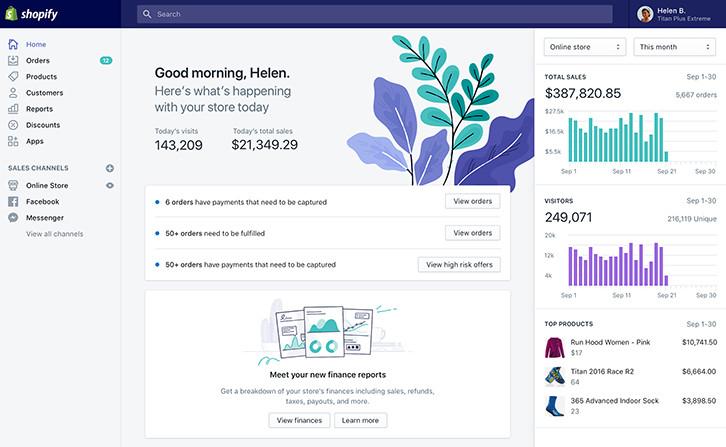
Square
Square is a perfect combination of online and in-person sales. A Square reader can be integrated effortlessly into stores to allow them to sell products. Additionally, Square owns the Weebly platform where you can establish your online store. However, there are a few limitations with limited themes compared to other platforms on the market.
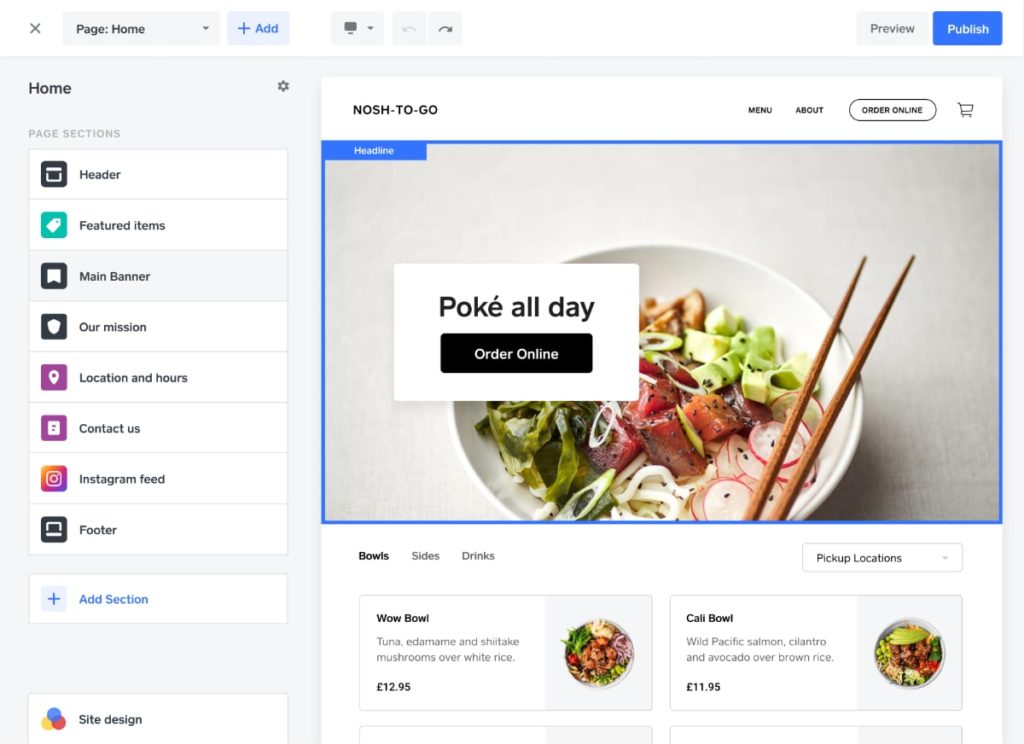
Bigcommerce
Bigcommerce is exactly what their name represents, focusing on larger companies that are already selling at a larger scale. As a part of the onboarding process, customers are prompted to set up sales taxes and automated shipping. The site is also integrated with payment processors including Stripe, Paypal, and Amazon.
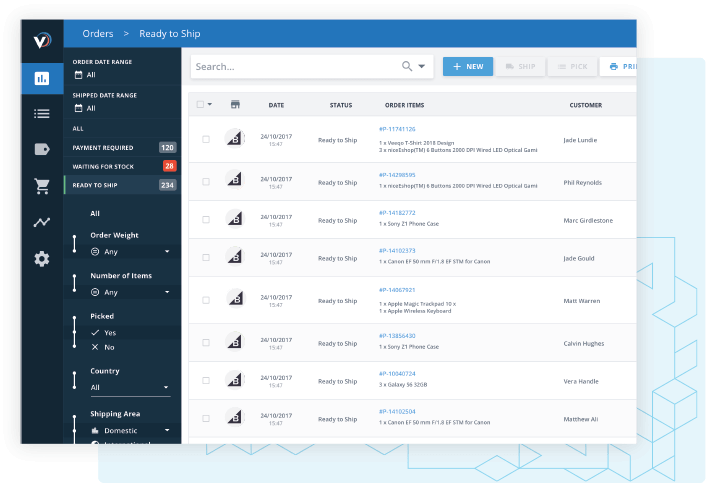
WooCommerce
WooCommerce is a built-in store in Weebly that allows customers to already have access to a prebuilt store. The eCommerce store allows for analytics to appear in one dashboard for easy access. Compared to the other platforms, this one is considered quite user-friendly, especially for those with little to no development experience.
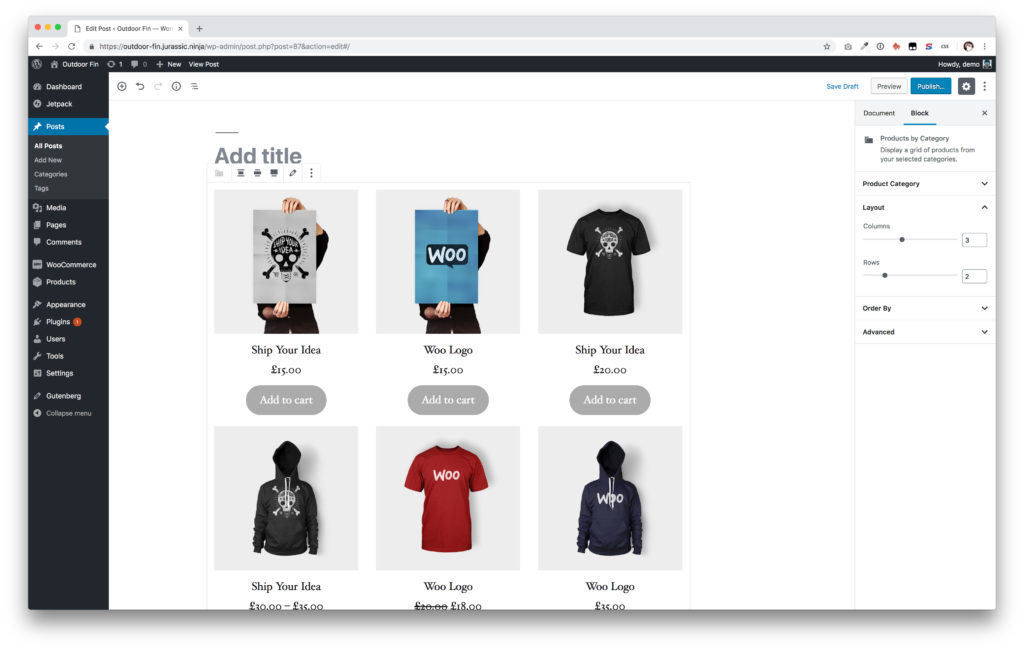
5 Tips To Help You Choose the Best Ecommerce Platform for Your Business
Start a free trial
In order to make the right decision when starting an online store, you’ll need a set of questions prepared beforehand.
For answers to your burning questions, you can contact sales and support, or you can start your free trial to see the features for yourself. It’s a good idea to test the software before you make a large purchase in order to determine if its features and user interface meet your needs.
Compare the cost of platforms
Depending on the features you choose, your eCommerce platform could cost as little as $10 or as much as $10,000. It’s important to understand what exactly you get with each eCommerce host if you want to decide if they’re really economical. Do significant research to determine which platform will provide the most value for your business.
Determine which platform is best for your store’s design/needs
Site design is a fundamental aspect of your business. Your first step to a successful relationship with your consumers begins here. Moreover, today’s consumers expect great UX and design. Many platforms offer templates or the ability to customize based on your store’s needs.
Test store functionality and ease of use
In terms of ease of use, you want to be able to do your job without having to learn a lot of coding and technological information. A platform must be easy to use, easy to navigate, and easy to set up correctly. Especially if you’re constantly changing or adding new products and services, having a platform you can easily use and make changes to is key.
Determine the scalability and customizability of the platform
Having planned your business so well means that you’ll grow in the long run. This also means your platform will need to offer additional support as your company grows. How will the support be provided? Many businesses use API integrations to customize their stores and provide automation capabilities according to their needs.
A business that is just getting started isn’t quite at this point, but it’s something you want to think about if you’re planning to expand. Choose platforms that have fast and trusted APIs for this step.
4 Common Mistakes to Avoid When Choosing an Ecommerce Platform
Choosing a platform that is hard to scale
A platform that is hard to scale harms the growth of your business. The main reason why some platforms lack scalability is that they do not support multi-tenancy and multi-site and they rely on either local servers or poor infrastructure.
Too many features
This also relates to scalability where you invest in a platform that has way more features than you actually need. Not only are you getting a poor value for your buck, but you’re paying for features that you are not using.
Choose a platform that meets the minimum “must-have” requirements but allows you to add new features and capabilities as your business grows. This helps to keep your spending in line with the growth of your business.
Bad customizations
Many brands choose a rigid platform and then try to customize their internal systems and requirements to fit the platform. But if you know what your requirements and goals are, you should be able to pick a platform that fits your brand for the most part — and is flexible enough to be customized for everything else.
Not having a partner to help build your platform
Setting up a platform alone can take hours and sometimes not turn out the way you want. With a digital partner to help build and/or manage your platform, such as Pyxl, you will have development and marketing experts alongside you to make the best decisions for your business.
Partner with Pyxl
Build and optimize your eCommerce site along with Pyxl. Contact Pyxl today!
Updated: Mar 02, 2023
 Bonnie Winter
Bonnie Winter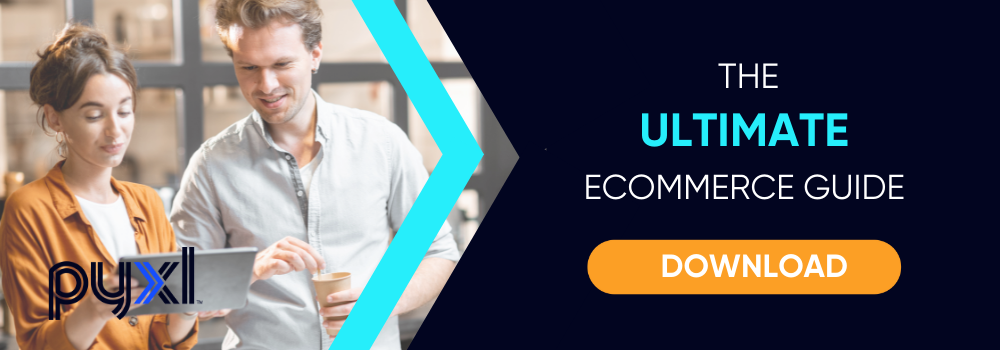
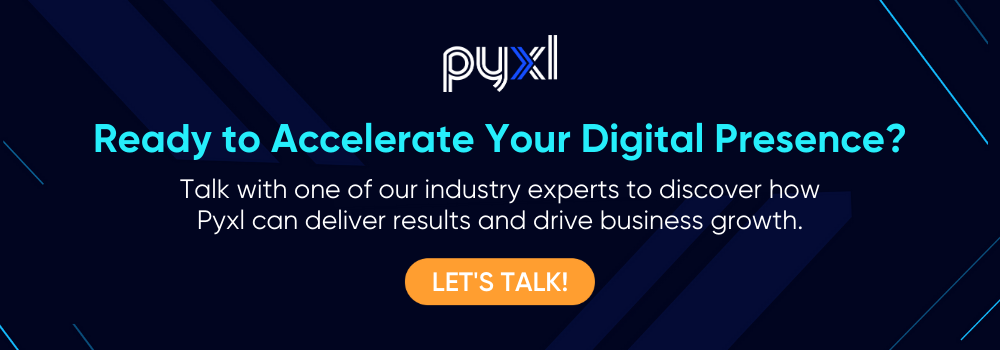
 Kati Terzinski
Kati Terzinski Erin Murray
Erin Murray